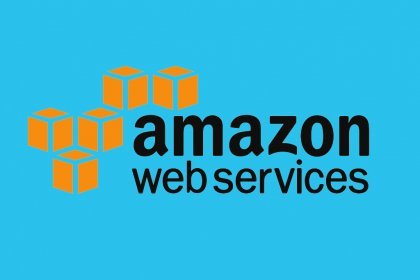With AWS Blockchain Templates you will be provided with an opportunity to create blockchain applications much faster and easier.
With a view to make it faster and easier for developers to build and deploy secure blockchain networks, Amazon has launched its Amazon Web Services Blockchain Templates. Thanks to these templates you will be able to concentrate your attention only on creating your blockchain-based applications and not to waste your time and forces for setting up your blockchain network manually.
For using AWS Blockchain Templates you do not need to pay any additional fees, you pay only the amount that is required for running a blockchain network. You pay only for those resources that you really use. But it is not the only benefit of using these templates.
They also provide you with a chance of fast deployment. It will take you just some minutes to deploy a blockchain network on Amazon ECS or Amazon EC2 instances. As a result, you are able to proceed to building your applications much faster.
Moreover, AWS Blockchain Templates offer you a choice from two the most demanded blockchain frameworks that provide support to two versions of the technology: Ethereum and the Linux Foundation’s Hyperledger Fabric. But you should also take into consideration that both these frameworks offer smart contract functionality, distributed consensus algorithms and access control features. But there are some obvious differences.
An open-source blockchain framework Ethereum allows you to develop blockchain applications that run exactly as created. There is no downtime, risk of fraud and censorship. Moreover, involvement of third-party is not required. Ethereum is a good option for those who prefer to transact with peers on the public Ethereum network, or want to utilize Ethereum’s Solidity smart contract language. It also will suit those who want to build a new public network.
Meanwhile, an open-source blockchain framework from the Linux Foundation known as Hyperledger Fabric will also enable you to create blockchain applications. And it also provides you with access control and permissions for data on the blockchain. Hyperledger Fabric will be a more appropriate variant for those who need to establish a private blockchain network, or want to limit visibility of transactions that can be seen for each party.
What is also important, in both cases despite your choice, AWS Blockchain Templates have some extra tools for managing, controlling and monitoring of your blockchain networks.
In his blog post announcing the launch of AWS Blockchain Templates, AWS vice president Jeff Barr wrote that today some people still do not have full understanding what exactly these technologies have brought us. “Either way, it is clear that there are a lot of intriguing possibilities and we are working to help our customers use this technology more effectively,” he added.
Nevertheless, Amazon is not the first company to offer its users opportunities of this kind. Oracle started a similar platform six months ago. In March, IBM announced the launch of its Hyperledger-based platform for startups for easier creation of blockchain project. And last week Chinese tech giant Huawei revealed its plans to start a new blockchain-as-a-service (BaaS) Hyperledger-based platform.
next